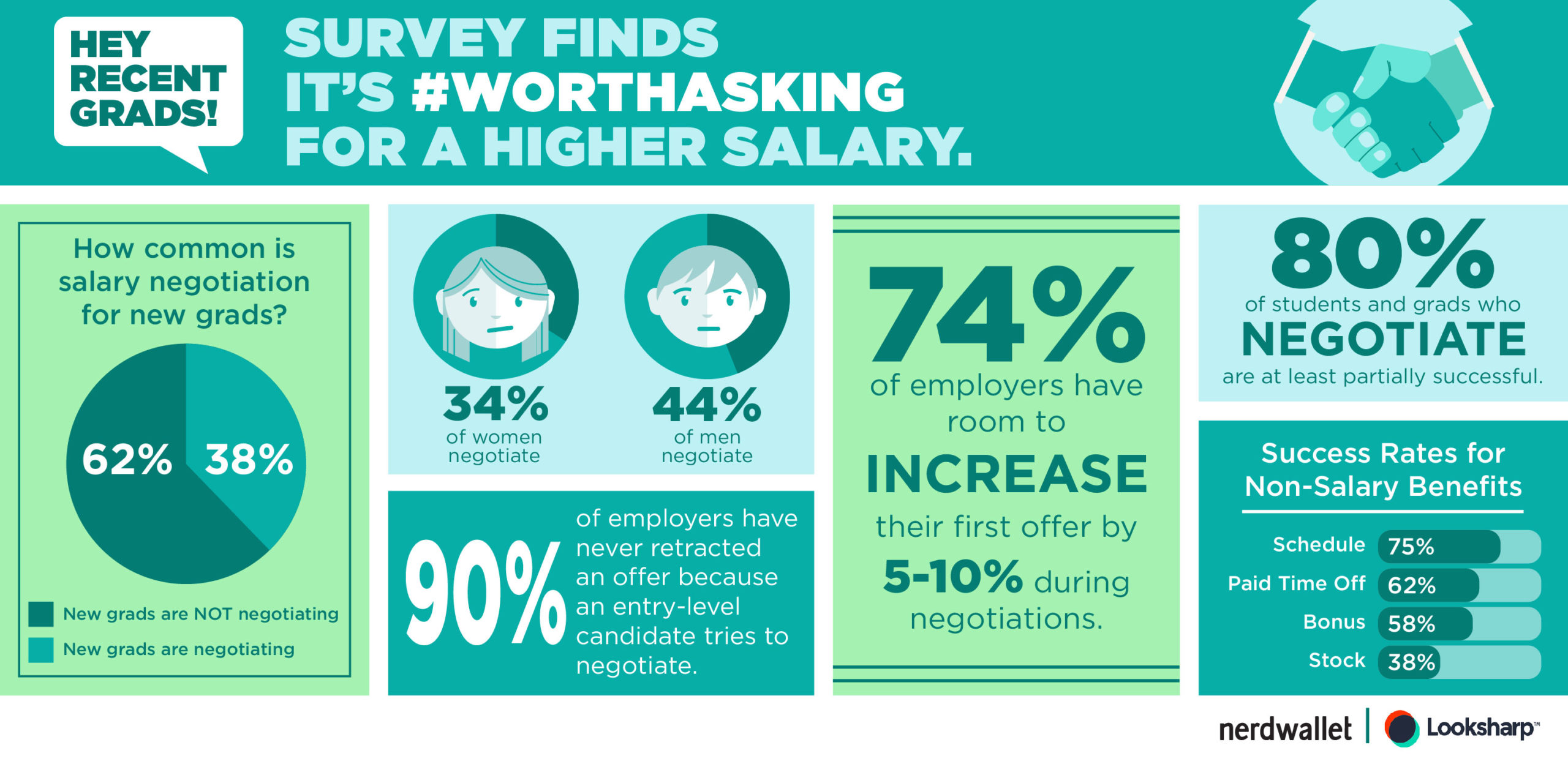In an office with 25 women and 6 men, I am lucky to see successful, professional women in senior leadership positions every day. The fact that this is not unusual in Washington, DC is one of the qualities that drew me here. In fact, the District of Columbia has the smallest gender-based income disparity of any state in the country. The average woman earns more than $0.90 for every $1.00 earned by the average man. There’s still a discrepancy, but it’s better than anywhere else.
For those of us early in our careers right now, beating boys academically and outnumbering them in the classroom was unremarkable. I assumed that negotiating a salary would be the same gender-neutral experience. Women just needed to be confident asking for raises and promotions.
However, studies show that women are right to hesitate before negotiating. According to Lean In, Sheryl Sandberg’s manifesto for the young, ambitious and female, a woman who negotiates “can pay a longer-term cost in goodwill and future advancement.” Published last April, Lean In took over water cooler conversation. But some of the women in our office wondered whether Sandberg’s negotiation advice was relevant for those of us in the woman-dominated nonprofit field.
To find out whether Sandberg’s suggestions help create a more compelling argument for a salary increase, I planned an experiment. I challenged my interns to plan and present a request for a pay raise using their best judgment. Next, my interns read Lean In’s chapter about negotiation and created a second appeal that incorporated Sandberg’s directions:
- Speak about your accomplishments as one member of a team
- Explain that you’re negotiating for a reason that isn’t self-advocacy
- Say that an outside person suggested that you bring up the issue
A panel of NSCS’ decision makers listened to both appeals and offered advice from their experience on both sides of the negotiating table. They agreed unanimously that the Sandberg-ized pitch was more appealing, but that a team approach to negotiation was problematic. “You’re taking the initiative. Get your raise first. Then tell them how great the team is,” said Panelist 1. “The context of doing something as a group makes you seem more open. But let me be honest. It would not work if someone came to me to talk about a raise, and they started talking about the whole entire team that needed a raise.”
Nonetheless, there are other ways to approach a pay raise while avoiding both entitlement and loss of agency. “Framing everything from an organization’s benefit instead of your own will get you what you want in the end, but the perception will be different. I think it’s true that if a man walked in and said, ‘I want a 20 percent raise. Here’s why,’ he wouldn’t be questioned. But if a woman does the same thing without a reason, we’re conditioned to ask, ‘Wow. Who does she think she is?’” said Panelist 2. “When [an intern] asked for a raise, I thought, ‘Whoa. What is she saying? Why does she want that?’”
“And then we all started laughing,” said Panelist 3. “Women will come in aggressive to compensate, or they’ll come in already apologizing for asking for what they deserve.”
“As a woman, you have to get past that,” said Panelist 1. “You don’t want to feel like you’re asking or begging for something.”
There are pressure-reducing strategies. “For stronger support in the overall process, create paper hand-outs with specific successes that you want to highlight so that we can see it and read it,” said Panelist 4.
Panelist 1 agrees that preparedness is the best approach. “One time, my employee had kept a list for a whole year. She said, ‘Here’s my job description. Here are all the extra things I’ve been doing.’ I had made the mistake of telling her that she was really underpaid. She had that quote on the list.”
Timing and transparency are the final keys to a successful appeal. “Knowing the timing shows that you’re in tune with the way that the organization works,” says Panelist 1. “Are you doing it at the end of the year when budgets are being formatted, where people are naturally in tune to be thinking about your performance and advancement?”
“Go to your supervisor first,” said Panelist 2. “They’re your biggest advocate. If they love you, they’ll go to bat for you. Don’t let them be caught off-guard. You don’t want them to be neutral.”
Panelist 3 agrees. “There’s nothing worse than being caught off-guard. Set up time to ask, ‘What do I need to accomplish for this to happen?’”
Panelist 2 had advice about how to achieve both success and likeability at the same time. “Think of fish bait in the water. Feed little tidbits throughout the year about how wonderful you are. Data is nice, but that warm and fuzzy feeling will do more to give you what you want.”

